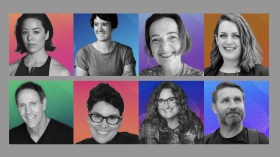On 21 July, ArtsHub tabled the list of 16 submissions made by organisations in the creative sector to the Senate Select Committee on Adopting Artificial Intelligence (AI), which conducted an inquiry and a series of hearings on the matter since March this year.
The Committee released its final report this week, with a list of 13 recommendations that seek to introduce AI-dedicated legislation, force transparency from AI companies owned by multinationals and ensure creators of copyrighted works used for training data are fairly remunerated.






